Uncategorized
Why Zimbabwe Should Follow China’s Lead in Media Development
Abel Karowangoro, recently in Beijing, China
The media plays a vital role in shaping national identity, promoting culture, and recording history. China stands out as a country that has used its media systems not only as a channel for information dissemination but also as a tool for nation-building.
Zimbabwe can draw valuable lessons from China’s model to strengthen its own media landscape and ensure that the nation’s story is told by its own people.
China’s media landscape operates through a well-organised four-tier system that integrates communication across national, provincial, municipal, and local levels. At the national level, major outlets such as the Xinhua News Agency and China Central Television (CCTV) function as the authoritative voices of the state, disseminating government policies, cultural values, and national achievements to both domestic and international audiences.
Provincial and municipal media serve as bridges between the central government and regional communities, focusing on local development, economic initiatives, and the distinctive characteristics of each province, while maintaining alignment with national objectives.
At the grassroots, local and community media outlets capture the everyday lives of citizens, safeguarding local traditions, dialects, and cultural practices that contribute to China’s diverse social fabric.
Collectively, this tiered structure ensures that communication flows effectively from the centre to the periphery, allowing every segment of society to be represented.
Through print, broadcast, and digital platforms, China’s media system not only fosters internal cohesion but also enhances the nation’s image on the global stage by promoting its culture, values, and developmental narrative.
Lessons for Zimbabwe
Zimbabwe, too, has a rich history, vibrant culture, and abundant natural resources.
However, the local media often focuses on political contestation and conflict rather than nation-building. This imbalance can weaken the collective identity and overshadow the country’s achievements and heritage.
Minister of Information, Publicity and Broadcasting Services, Dr Jenfan Muswere, said Zimbabwe needs to embrace communication development across all sectors.
“Media should not only inform but also educate, empower, and inspire pride in being Zimbabwean,” He said.

Our ancestors built a legacy of resilience, innovation, and cultural depth, from the Great Zimbabwe civilisation to the liberation struggle.
“It is the responsibility of today’s media to preserve and promote these stories.
If we do not write our own history, others will write it for us and often from perspectives that do not reflect our true identity.”
Sharpening Skills and Building Home-Grown Media Capacity
During an engagement by Professor Cheng from Communication University of China, he emphasised that developing countries must embrace home-grown media applications and technologies in order to encourage effective communication.

He noted that while the process may be difficult at first, persistence and innovation will lead to growth.
“That’s how China’s media started,” he said, encouraging nations like Zimbabwe to develop their own communication systems step by step.
Echoing this sentiment, Professor Wang Yao urged developing countries to come up with innovative ways of writing their stories, focusing on cultural exchange and local content development in every sector that forms the backbone of the nation.
Professor Cheng’s and Professor Wang’s words are a reminder that media development is not just about technology; it’s about sharpening skills, media skills, and mastering the art of information dissemination.
True communication is not about creating passive viewers or followers, but about ensuring that users actively comprehend and engage with the information shared.
It’s about communicating seasoned, well-researched, and meaningful information that builds trust and understanding.
China Champions Cross-Continental Media Collaboration
The theoretical framework provided by Chinese academics is powerfully reinforced by concrete government-led action.
Beijing recently became a hub of cross-continental dialogue as the Chinese government hosted the Seminar on Regional Online Media for Belt and Road Countries.
Organised by the National Radio and Television Administration (NRTA) and executed with the China Broadcasting International Cooperation (CBIC), the event drew thirty-two media professionals from Belt and Road Initiative (BRI) countries, including a delegation of 9 media professionals from Zimbabwe.

Throughout the 14-day seminar, participants engaged in vibrant discussions and shared their diverse voices and experiences.
A key highlight was a study tour to state-of-the-art institutions that have embraced cutting-edge technology in media production, providing the delegates with invaluable, hands-on insight into the future of the industry.
Ms Zhou Jinhong, Director-General of the International Cooperation Department at NRTA, set a visionary tone.
“All we come from different countries and different regions, but we are united by the BRI,” she declared, framing the seminar as a platform for deepening audiovisual and broadcast ties.
She highlighted initiatives like the China-Africa Broadcast and Audiovisual Cooperation Innovation Program, designed to co-create content that resonates across borders.
Acknowledging the challenges of the digital age, Ms Zhou said, “new tech, artificial intelligence, and big data are increasingly posing challenges to media… We are waiting to learn to communicate and share experiences.”
Her call for depth learning and investment in skills was a direct invitation for collaboration.
Mr Xiong Zhihui, Chairman of CBIC, underscored this mission.
“The aim is to build important platforms, sharing experiences—countries have accumulated various experiences,” he said.
He outlined practical platforms for capacity building, merging traditional and new media, and invited professionals to help with skills transfer, emphasising that “the future of the media is in this between countries.”
This high-level seminar is a clear signal: China is ready for collaboration. It is actively creating frameworks and pouring resources into helping developing nations, like Zimbabwe, build resilient, modern media ecosystems.
The focus is on a two-way exchange, fostering a media future rooted in mutual benefit and shared prosperity.
Strengthening Community Media
For Zimbabwe, the path forward is clear. We must actively engage with these opportunities for cooperation while fiercely nurturing our own talent and content. It is imperative that Zimbabwe utilises these platforms to speak its local richness.
This is not a task solely for major state-owned institutions like Zimpapers and ZBC; it is a responsibility for all media institutions. It is their right and their duty to write the nation’s story.
Community radios, online startups, and independent production houses have a crucial role to play in telling the Zimbabwean story.
Each region, be it Matabeleland, Manicaland, Masvingo, or Mashonaland, has unique traditions, languages, and histories that deserve recognition. By focusing on local heritage, all media can help preserve culture while contributing to national unity.
Moreover, the media should highlight developmental initiatives, innovations, and cultural events that uplift communities. Positive storytelling does not mean ignoring challenges; it means balancing criticism with constructive dialogue and celebrating progress.
China’s success in building a powerful media system that reflects its culture and history offers important lessons for Zimbabwe. More importantly, China has demonstrated a genuine commitment to sharing this expertise through concrete platforms for cooperation.
A strong, independent, yet patriotic media can be the foundation of national pride and unity.
Zimbabwe’s journalists, broadcasters, and writers must now take up the responsibility to tell the nation’s story truthfully and positively, leveraging both our own innovation and the collaborative bridges being built.
Because if we do not write our history, no one else will do it for us, and certainly not in the way we would want it to be told.
Uncategorized
New Waste Fleet Rolls Out as President Demands Clean Cities
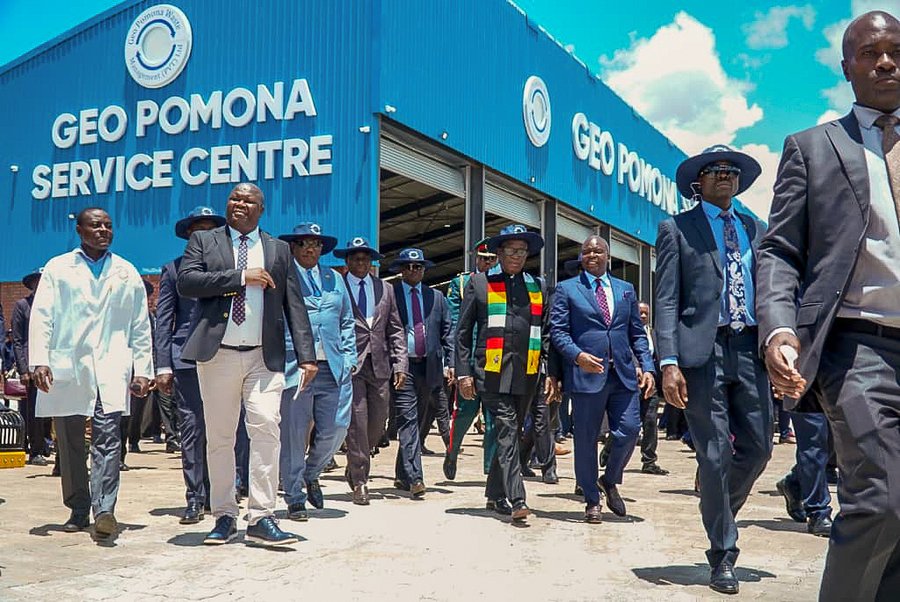
President Emmerson Mnangagwa today commissioned the second batch of refuse collection compactors and equipment at Geo-Pomona Waste Management (Pvt) Ltd, emphasising the government’s commitment to transforming waste management into an economic and environmental asset.
Speaking at the event in Harare, the President linked the project to the National Development Strategy 2 (2026–2030), particularly under the Agriculture, Food, Climate and Environment priority.
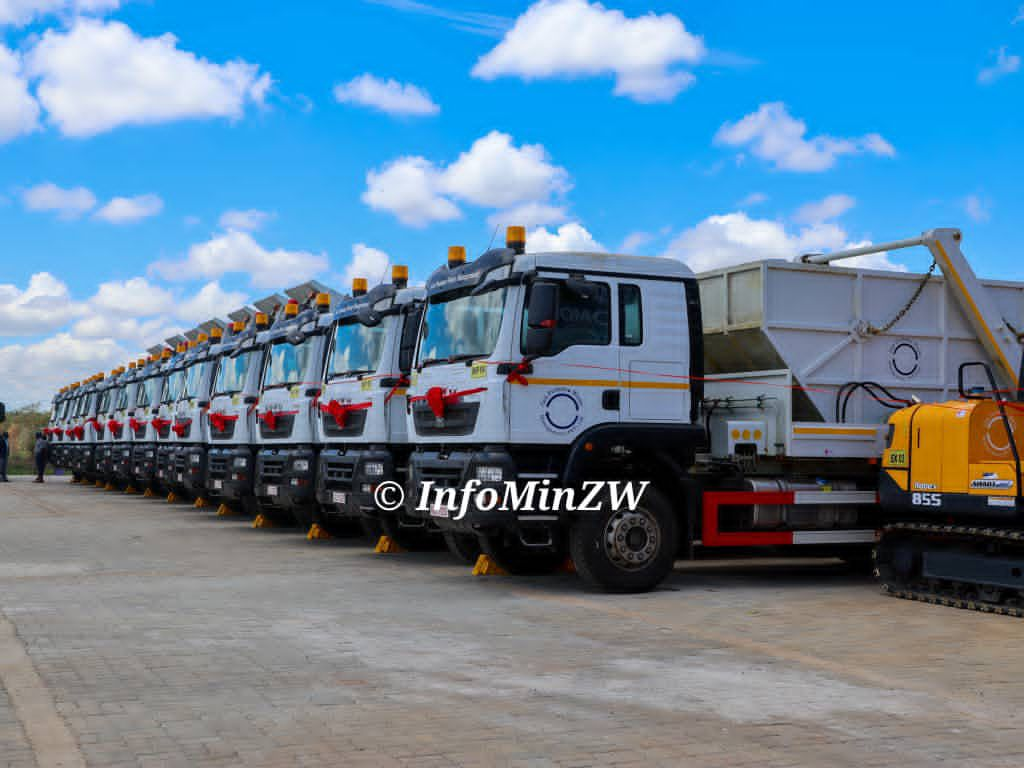
He stated that modernising waste management systems is essential for uniformity in service delivery, environmental compliance, and resource recovery.
“We are not merely unveiling new refuse collection equipment,” President Mnangagwa said.
“We are witnessing the continued growth of a project of strategic significance.”
He praised Geo-Pomona’s role in supporting Harare’s transformation into a “world-class city” through beautification and sustainable environmental programs.
Geo Pomona Waste Management Chief Executive Officer Dr Delish Nguwaya called for stricter enforcement against littering.
He urged authorities to impose penalties on those who discard waste improperly, emphasising that maintaining clean cities requires both investment in equipment and accountability from citizens.

The President also highlighted the importance of public-private partnerships and a “Whole of Society Approach” in achieving national development goals.
He pointed to the growing need for advanced waste sorting, recycling, and disposal methods, especially amid rapid urbanisation.
President Mnangagwa announced that awards will be given to top-performing local authorities in observance of the National Clean-Up Day, held on the first Friday of each month.
He encouraged communities to take ownership of clean-up initiatives and uphold environmental stewardship.
The ceremony was attended by senior government officials, including the Vice Presidents, ministers, and the First Lady, as well as representatives from the Harare City Council and the private sector.
Concluding his address, the President declared the new fleet officially commissioned and reaffirmed the national motto: “Nyika inovakwa, inotongwa, inonamatigwa nevene vayo”.
Uncategorized
Tobacco Farmers Urged to Insure Crops as Hailstorm Threat Rises

Itai Mazire
The Ministry of Lands, Agriculture, Fisheries, Water and Rural Development has urged tobacco farmers across the country to urgently take up crop insurance as unpredictable weather patterns, especially hailstorms, threaten to wipe out their livelihoods.
In a statement, the Ministry warned that tobacco growers are facing a significant threat to their crops from unexpected weather events, particularly hailstorms. “Such events can cause devastating damage to tobacco crops, resulting in substantial financial losses for farmers.
“In light of this risk, it is imperative for all tobacco growers to take proactive measures to protect their investment. One of the most effective ways to mitigate this risk is to insure your crop with a reliable insurer,” reads part of the statement.
The Ministry indicated that crop insurance provides farmers with a critical buffer against financial ruin.
“Crop insurance provides a vital safety net for tobacco growers, enabling them to recover from unforeseen events and minimise the financial impact of crop damage or loss,” the Ministry stated.
It added that with insurance, farmers can have peace of mind knowing their investment is protected.
The Ministry strongly encouraged growers to prioritise working with reputable insurers, saying this will help them “protect their investment from unforeseen weather events, ensure they receive support in the event of loss, and safeguard their livelihood and farm’s financial stability.”
With the rainy season underway, authorities issued a final reminder, urgently calling on farmers to invest in crop insurance. “Do not wait until it is too late. Insure your tobacco crop today and rest assured that you have taken the necessary steps to protect your investment.”
Uncategorized
Manicaland Co-opts Dr Tungwarara Into Central Committee
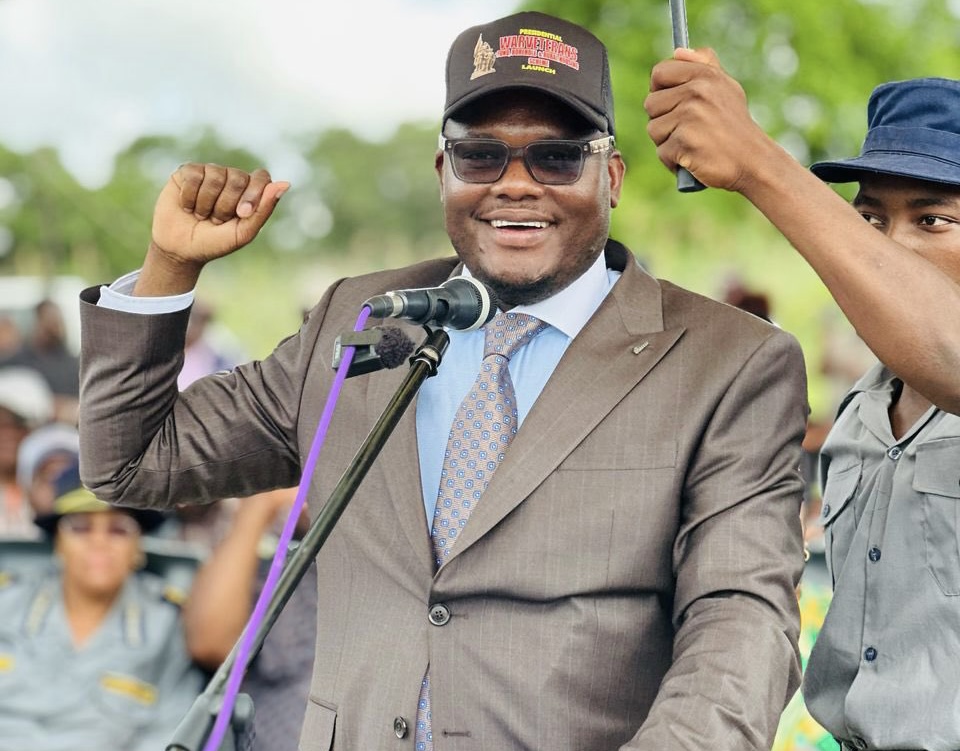
Manicaland Province has brought Dr Paul Tungwarara into the ZANU PF Central Committee, a move viewed as an important boost to the province’s leadership profile.
The appointment, confirmed during a provincial coordination committee meeting, underscores the province’s acknowledgment of Dr Tungwarara’s contributions to national development and his longstanding commitment to party programmes.
Provincial officials described his elevation as both timely and strategic, highlighting his background in business, community initiatives and economic empowerment as assets that will enhance Manicaland’s influence in national policy discussions.
In accepting the new role, Dr Tungwarara thanked the province for its trust and vowed to champion programmes that uplift communities, drive economic activity and promote unity within party structures.
Leaders noted that the co-option is part of broader efforts to strengthen party leadership with individuals dedicated to advancing Zimbabwe’s development trajectory.
-

 Current Affairs1 month ago
Current Affairs1 month agoOperation restore order
-

 Crime and Courts3 months ago
Crime and Courts3 months agoMasasi High School Abuse Scandal Sparks Public Outcry
-

 Crime and Courts3 months ago
Crime and Courts3 months agoKuwadzana Man Jailed for Reckless Driving and Driving Without a Licence
-

 Current Affairs5 months ago
Current Affairs5 months agoBreaking: ZIMSEC June 2025 Exam Results Now Available Online
-

 Current Affairs4 months ago
Current Affairs4 months agoMunhumutapa Day: Zimbabwe’s Newest Public Holiday Set for Annual Observance
-

 Current Affairs3 months ago
Current Affairs3 months agoBREAKING NEWS: ZANU PF Director General Ezekiel Zabanyana Fired
-

 Current Affairs4 months ago
Current Affairs4 months agoNo Racism in Our Cricket: Government
-

 Current Affairs4 months ago
Current Affairs4 months agoGovernment Bans Tinted Car Windows in Nationwide Crime Crackdown

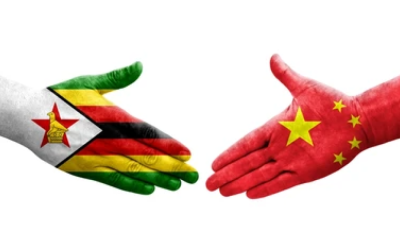





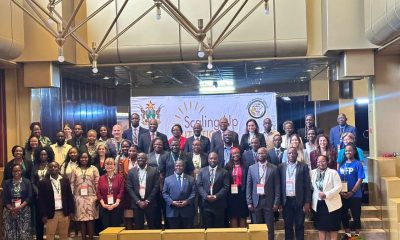



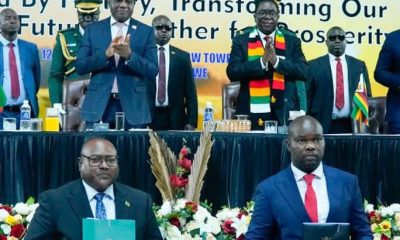




Pingback: Africa’s Time to Industrialise – Hurumende